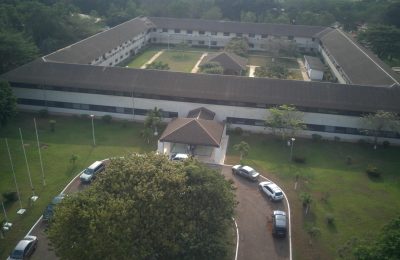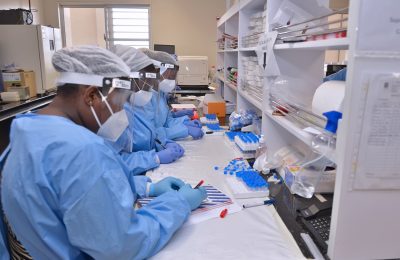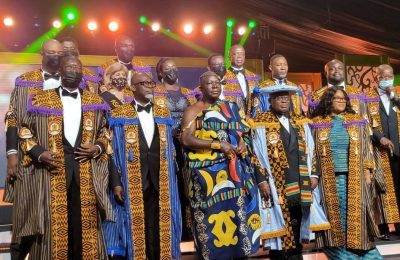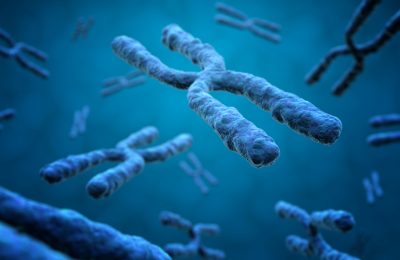- Home
- About
- Departments
- Research Activities
Advanced Research Center
Established in 2020
- Research Support Units
Co-ordinates All Activities Of The Institute
- Resources
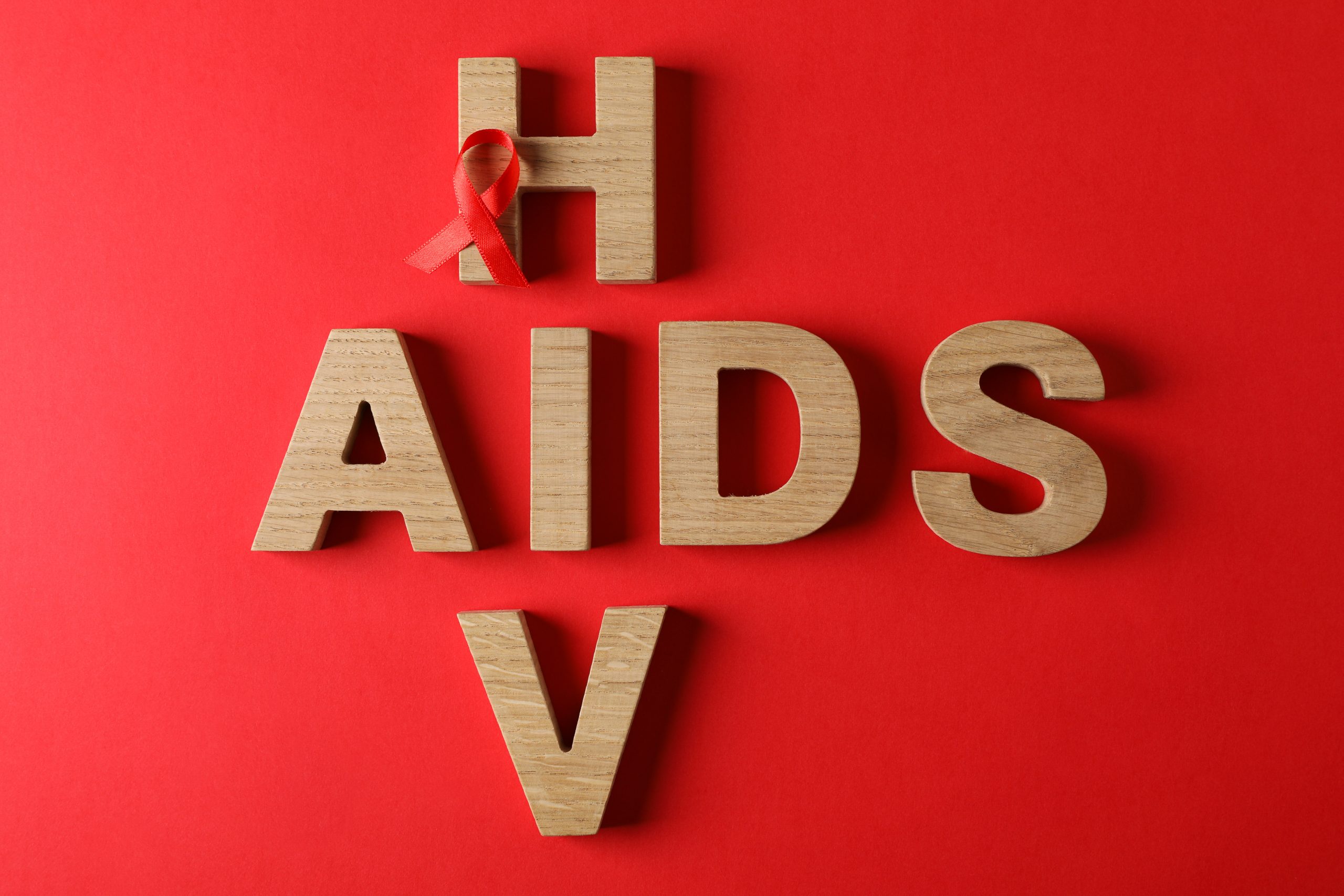
Immune mechanisms and host receptor polymorphisms in HIV infection
Lead Investigator(s)

Helena Lamptey, PhD
Immune mechanisms and host receptor polymorphisms in HIV infection

Lead Investigator
Name of Lead PI
Project Summary
Project Background
To conduct translational research into T cell immune mechanisms and host receptor polymorphisms involved in risk of infection in some viral diseases like HIV, cervical cancers and Hepatitis. Additionally, to investigate genetic polymorphisms and immunological biomarkers to HIV latency, reservoir size and other infectious diseases. My short-term goal is to determine whether there are potential interactions between FCGR gene polymorphisms and HIV infection progression and antiretroviral therapy (ART) outcomes in Ghanaian adults.
During HIV infection the host immune system elicits antibodies to control the virus. Depending on receptor type, Fc Gamma Receptors (FcγR) can regulate immunity by causing cell activation or inhibition in response to infections. There are differences in HIV infection progression and treatment outcomes among different patients. One of the factors hypothesized to be the cause of these differences is FCGR polymorphisms. Genetic variations that occur in FCGR genes such as Copy Number Variations (CNV) and Single Nucleotide Polymorphisms (SNPs) have been shown to affect Fc-mediated effector functions. These variations could modify FcR expression and IgG isotype binding, which would affect HIV infection risk and disease progression.
Although the burden of HIV in Africa is high, data is lacking on the effect of FCGR polymorphisms on HIV disease progression and antiretroviral therapy (ART) response in African populations. Therefore, it is important to determine the impact of host FCGR polymorphisms on HIV infection progression and ART response in the Ghanaian population. research into immune mechanisms and host receptor polymorphisms involved in risk of HIV infection, latency, and HIV vaccines.
Aim:
- To genotype FcγRIIa, FcγRIIb, FcγRIIc, FcγRIIIa and FcγRIIIb SNPs and copy number variants associated with HIV infection and treatment outcomes.
- To measure the reservoir size of the patients (total HIV DNA, cell associated RNA).
- To evaluate virological and immunological biomarkers of the HIV-1 latent reservoir.
Expected Outcomes: The potential contributions of FcγR polymorphisms and copy number variants in HIV-1 infection and treatment outcomes will be determined. Data from the multiple time point sampling is expected to provide more insight into how these polymorphisms will affect disease progression, reservoir size and ART outcomes in HIV infected individuals. Furthermore, it will provide baseline data on the distribution of different FCGR gene polymorphisms, that would be crucial for potential HIV vaccine trials in Ghana since some candidate vaccines appear to be influenced by these.
Ongoing-Activities
The postdoctoral training (9 months) is being hosted in Amsterdam University Medical Centre, Laboratory of Experimental Virology, through collaborations with Prof. Ben Berkhout’s laboratory, under the mentorship of Dr. Alexander Pasternak. Using archived samples of HIV-1 positive patients to generate preliminary data on the above objectives. Involved in other HIV reservoir research with the HIV Cure Research Infrastructure Study Group (H-CRIS) (THE MASSIVE ACTION TEAM), led by Dr. George Kyei.
Project Background
To conduct translational research into T cell immune mechanisms and host receptor polymorphisms involved in risk of infection in some viral diseases like HIV, cervical cancers and Hepatitis. Additionally, to investigate genetic polymorphisms and immunological biomarkers to HIV latency, reservoir size and other infectious diseases. My short-term goal is to determine whether there are potential interactions between FCGR gene polymorphisms and HIV infection progression and antiretroviral therapy (ART) outcomes in Ghanaian adults.
During HIV infection the host immune system elicits antibodies to control the virus. Depending on receptor type, Fc Gamma Receptors (FcγR) can regulate immunity by causing cell activation or inhibition in response to infections. There are differences in HIV infection progression and treatment outcomes among different patients. One of the factors hypothesized to be the cause of these differences is FCGR polymorphisms. Genetic variations that occur in FCGR genes such as Copy Number Variations (CNV) and Single Nucleotide Polymorphisms (SNPs) have been shown to affect Fc-mediated effector functions. These variations could modify FcR expression and IgG isotype binding, which would affect HIV infection risk and disease progression.
Although the burden of HIV in Africa is high, data is lacking on the effect of FCGR polymorphisms on HIV disease progression and antiretroviral therapy (ART) response in African populations. Therefore, it is important to determine the impact of host FCGR polymorphisms on HIV infection progression and ART response in the Ghanaian population. research into immune mechanisms and host receptor polymorphisms involved in risk of HIV infection, latency, and HIV vaccines.
Aim:
- To genotype FcγRIIa, FcγRIIb, FcγRIIc, FcγRIIIa and FcγRIIIb SNPs and copy number variants associated with HIV infection and treatment outcomes.
- To measure the reservoir size of the patients (total HIV DNA, cell associated RNA).
- To evaluate virological and immunological biomarkers of the HIV-1 latent reservoir.
Expected Outcomes: The potential contributions of FcγR polymorphisms and copy number variants in HIV-1 infection and treatment outcomes will be determined. Data from the multiple time point sampling is expected to provide more insight into how these polymorphisms will affect disease progression, reservoir size and ART outcomes in HIV infected individuals. Furthermore, it will provide baseline data on the distribution of different FCGR gene polymorphisms, that would be crucial for potential HIV vaccine trials in Ghana since some candidate vaccines appear to be influenced by these.
Objectives & Research Areas
Key Findings
Ongoing Activities
The postdoctoral training (9 months) is being hosted in Amsterdam University Medical Centre, Laboratory of Experimental Virology, through collaborations with Prof. Ben Berkhout’s laboratory, under the mentorship of Dr. Alexander Pasternak. Using archived samples of HIV-1 positive patients to generate preliminary data on the above objectives. Involved in other HIV reservoir research with the HIV Cure Research Infrastructure Study Group (H-CRIS) (THE MASSIVE ACTION TEAM), led by Dr. George Kyei.
Publication
Lamptey, H., Bonney, E. Y., Adu, B., & Kyei, G. B. (2021). Are Fc Gamma Receptor Polymorphisms Important in HIV-1 Infection Outcomes and Latent Reservoir Size?. Frontiers in immunology, 12, 656894. https://doi.org/10.3389/fimmu.2021.656894
Bonney, E. Y., Lamptey, H., Aboagye, J. O., Zaab-Yen Abana, C., Boateng, A. T., Quansah, D., Obo-Akwa, A., Ganu, V. J., Puplampu, P., Kyei, G. B., & H-CRIS Massive Action Team (2021). Unwillingness of patients in Ghana to interrupt antiretroviral therapy for HIV cure research. Journal of virus eradication, 7(1), 100027. https://doi.org/10.1016/j.jve.2020.100027
team Members

Dr. George Kyei

Dr. Mrs. Evelyn Yayra Bonney
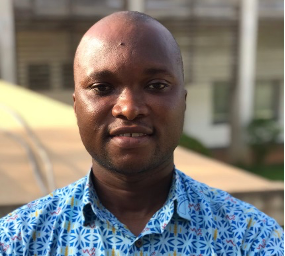
Dr. Bright Adu
External Collaborators
Prof Ben Berkhout and Dr. Alexander Pasternak Laboratory of Experimental Virology
Amsterdam University Medical Centre, Netherlands
Funder
Funded by EDCTP-AREF preparatory fellowship TMA2018PF-2535

